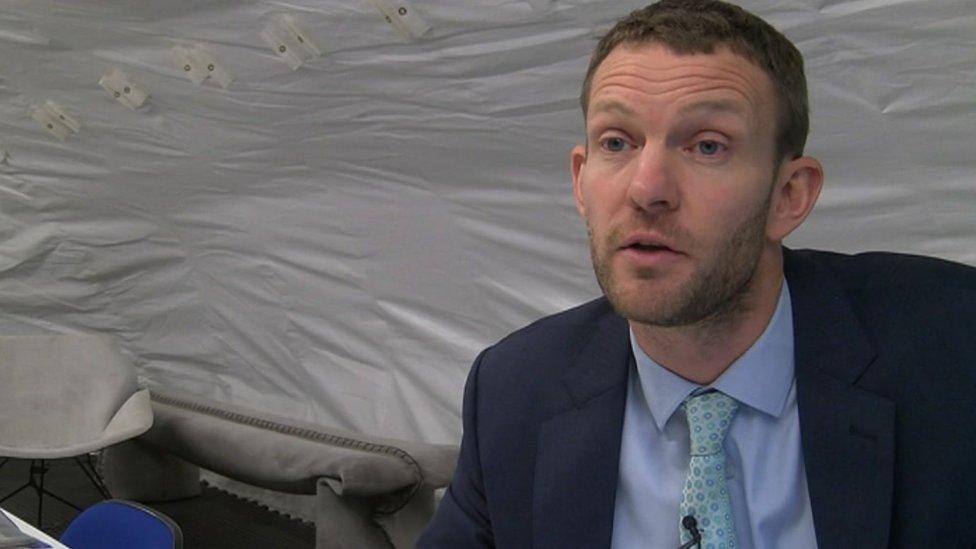Public still deeply divided on Brexit, survey suggests
- Published
- comments
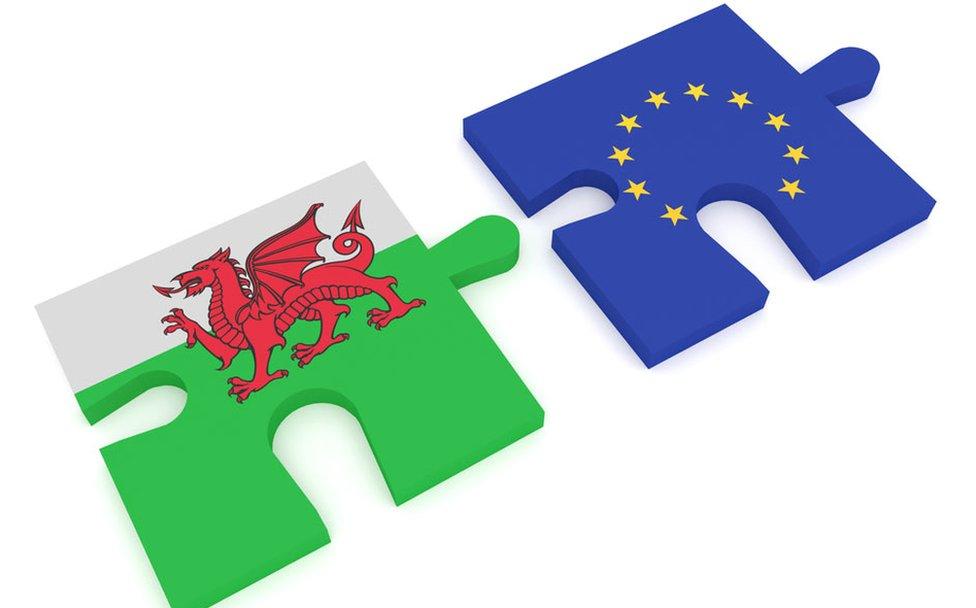
Wales is still deeply split over what the consequences of Brexit will be and what form the UK's departure from the EU should take, according to a survey.
It found 73% of Remain voters thought they would be worse off outside the EU, compared with just 17% of Leave voters.
The Wales Governance Centre/YouGov survey also found similar splits over the UK's post-Brexit deal.
Prof Roger Scully from the centre said the nation was "not coming together" on Brexit.
What will Brexit mean for funding in Wales?
What could Brexit mean for the Welsh NHS?
All you need to know about the UK leaving the EU
The survey findings have been published 16 months after Wales voted to leave the EU by 52.5% to 47.5% - a slightly higher margin than for the UK as a whole.
Just under a third of Leave voters (30%) told researchers they thought they would be better off after Brexit, whilst more than half (53%) believed there would be no perceivable difference.
On the question of how Brexit should work, more than three-quarters (78%) of Leave voters said they wanted the UK to regain full control of how it is governed, while 41% of those who voted Remain said they still wanted to stay in the EU and 22% wished to keep close to the bloc with associate membership.
Asked about what leaving the European Union might mean for Wales as a whole, 82% of Remain voters believed it would be worse off, with 24% of Leave voters reaching that conclusion.
Some 52% of Leave voters expected there to be no marked difference while 24% thought Wales would be better off.
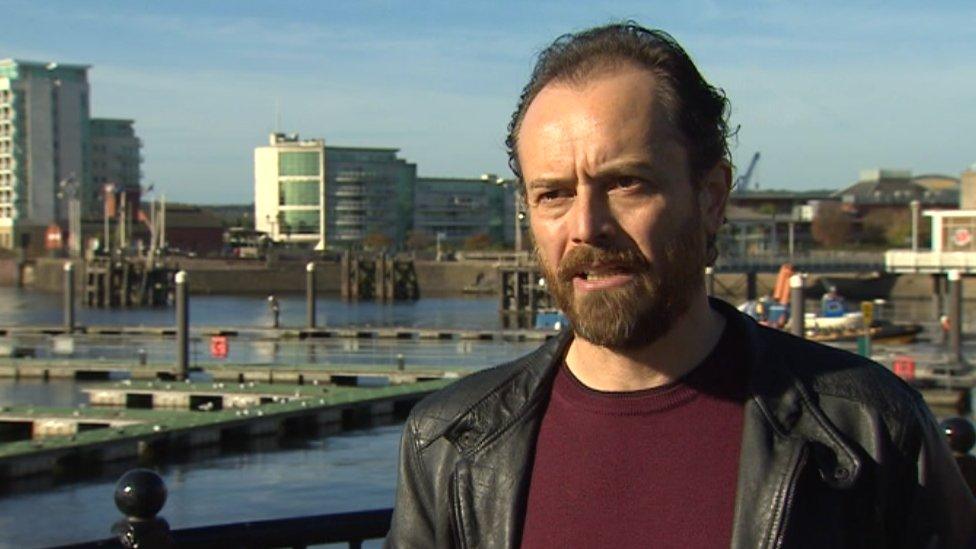
Prof Roger Scully said the picture the survey paints is "not a positive one"
There has been much criticism of a claim by leading Leave campaigners that health services across the UK could receive £350m extra a week after Brexit.
But only 35% of Leave voters told the survey they thought more money would come to the NHS post-Brexit, with 11% thinking health funding would fall.
Some 6% of those who voted to stay in the EU believed health services would benefit financially from leaving the bloc, while 50% of them though the NHS would lose cash.
Prof Scully said: "There is little sign of public consensus emerging on Brexit: we are not coming together, as the prime minister has suggested, but continue to be deeply divided.
"Remainers and Leavers from June last year not only want different things from Brexit. They also expect different things to result from the UK leaving the EU.
"And they even have different views about the political process - about how Brexit should be done."
The survey was conducted by YouGov for Cardiff University's Wales Governance Centre - 3,014 respondents were interviewed, via the internet, between 23 June and 6 July 2017
- Published25 October 2017
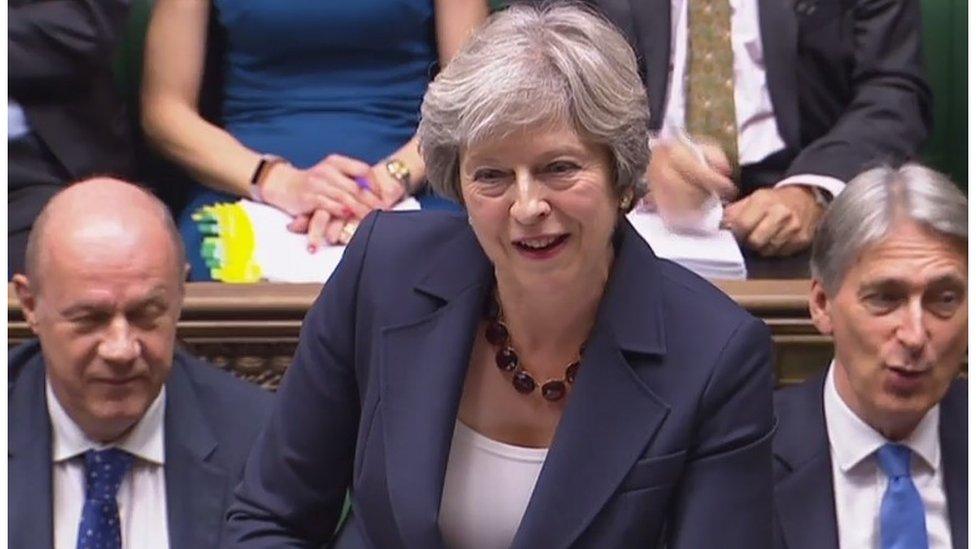
- Published25 October 2017
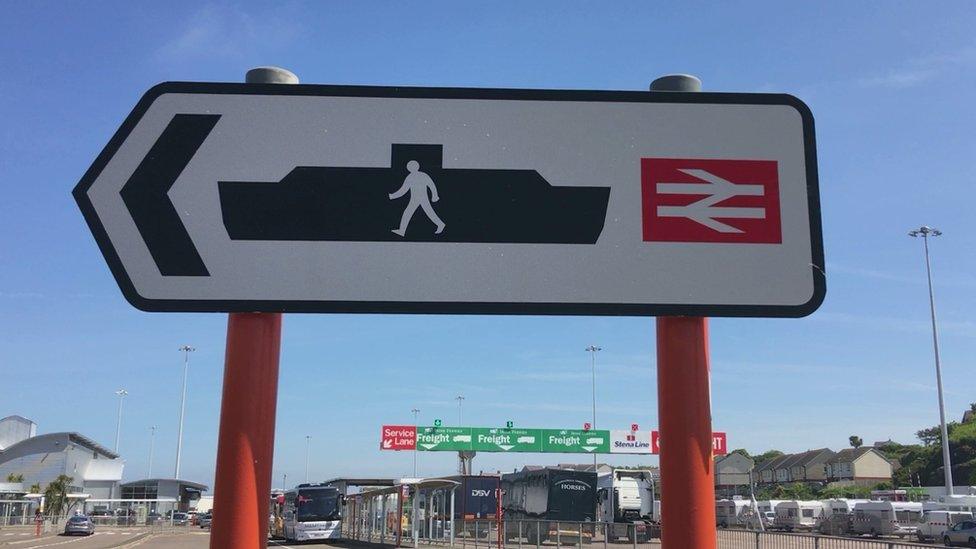
- Published24 October 2017
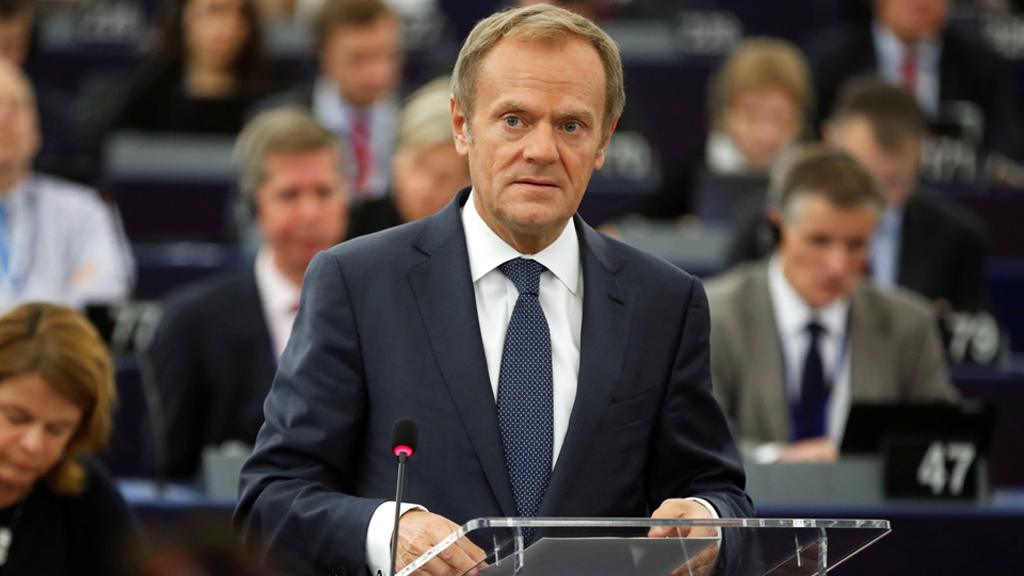
- Published17 October 2017
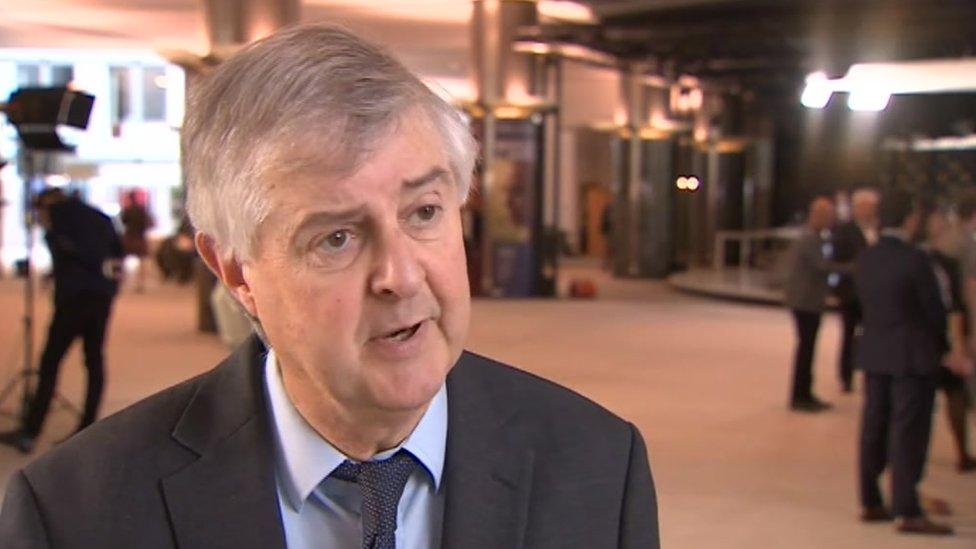
- Published16 October 2017
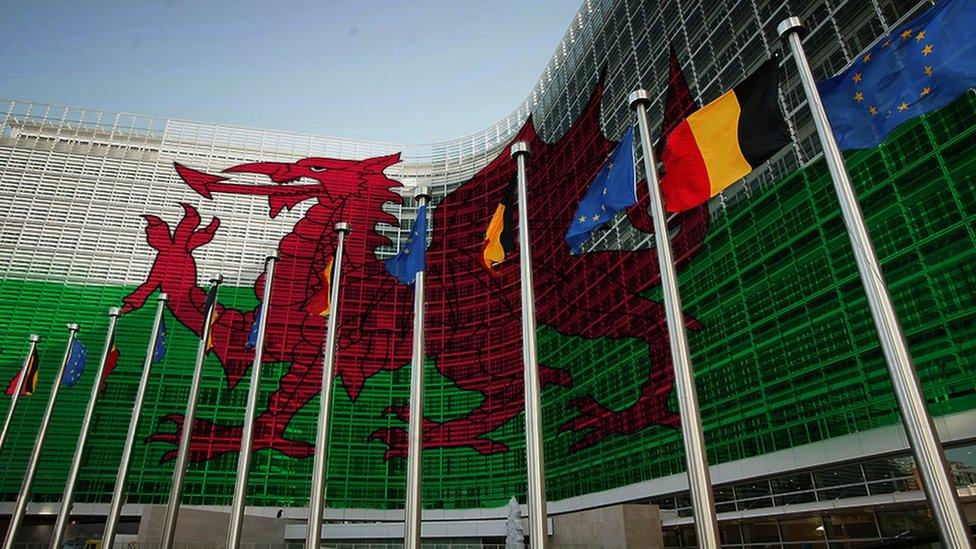
- Published12 October 2017
